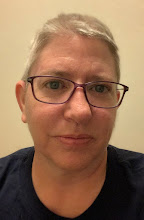She's been diagnosed with breast cancer. She's 36, the same age I was when I was diagnosed. Her mother is a two-time BC survivor, so it seems Applegate's been taking the advised precautions of mammograms and sonograms for early detection. And that says a lot — doesn't matter if you've got a family history or not, women should be doing whatever they can. I didn't, and it really scares me to think what might have happened if I hadn't accidentally felt that lump when I did.
So, no matter your age, do a self-exam monthly. If you're between 35 and 40, get a mammogram — this can be used as a baseline to compare your future mammograms to, which you should have every year once you're 40. If you're at high risk, talk to your doctor about also getting sonograms or an MRI, too.
I had it pretty "easy" with my treatment, in part because it was found fairly early. But I've seen what this disease can do, and it doesn't care how old you are, if you have children, if you're married or not, or what you've accomplished — or could yet do — with your life. Since I joined my support group, we've lost 4 members to cancer, and another is fighting for her life. So don't screw around with your chances.
Sunday, August 03, 2008
Subscribe to:
Post Comments (Atom)


1 comment:
An important resource for those at risk for hereditary breast cancer is the FORCE: Facing Our Risk of Cancer Empowered website, www.facingourrisk.org. The Director, Sue Freidman, is one of the most credible sources of expert information on this topic. She is an 11 year breast cancer survivor and BRCA carrier. Additionally, she is a tireless advocate for ensuring informed decision-making for those at risk for hereditary cancer.
Post a Comment